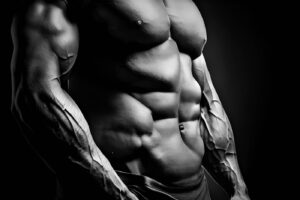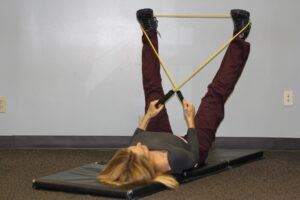Introduction
Hydration plays a pivotal role in optimizing exercise performance and recovery. Let’s discover how the impact of dehydration on exercise performance can hinder your progress and learn to identify dehydration’s subtle signs. We’ll equip you with effective hydration strategies tailored for various environments and reveal cutting-edge research that can refine your approach to fluid intake. Whether you’re an athlete aiming for peak performance or a fitness enthusiast eager to improve, this post provides the insights you need to master your hydration plan and elevate your physical achievements. Stay hydrated, stay ahead, and let every sip fuel your journey to excellence.
Understanding Body Water Composition
Role of Water in the Human Body
Water, our body’s unsung hero, goes way beyond quenching our thirst. It’s the powerhouse fueling every bodily function, from boosting brainpower to keeping muscles moving smoothly. As we navigate life’s intricate dance, every cell, tissue, and organ leans on water to shine. This dependence amplifies during physical activity, be it a gym workout or a stroll in the park. As your body revs up for the challenge, its cry for water grows louder, highlighting its crucial role in maintaining our balance.
Water: The Ultimate Exercise Companion
Picture your body as a high-octane sports car; water serves as its critical cooling system. As you push through your exercise routine, your muscles generate heat, challenging your body’s ability to maintain a stable internal temperature. Water steps into this heated scenario like a hero, transporting heat to your skin’s surface, where it vanishes as sweat, leaving a refreshing coolness in its wake. However, let your water levels dip too low, and you’ll find your body’s temperature control goes haywire, much like a car’s engine without coolant, putting your health and exercise performance at risk. This delicate balance underscores the importance of staying hydrated, not just for health but as a cornerstone of physical fitness.
Maintaining Fluid Balance Through Workouts
Engaging in physical activity sets off a cascade of changes in your body, including an increase in water loss through sweat and even your breath. This loss, if not counteracted with adequate fluid intake, paves the way for dehydration, a nemesis to your body’s finely tuned balance. Hydration, therefore, is not just about staving off thirst; it’s about replenishing the water your body sacrifices in the pursuit of fitness. A well-hydrated body ensures that your performance doesn’t suffer, aids in your recovery, and primes you for the next day’s challenges. It’s a cycle of preparation, action, and recovery, with water at its core.
Mechanisms of Dehydration

Dehydration is a sneaky adversary for athletes and fitness enthusiasts, manifesting through various channels and impacting performance in significant ways. Understanding its mechanisms, causes, and physiological implications is crucial for maintaining peak performance and ensuring overall health.
Causes of Dehydration in Athletes
Dehydration extends beyond the simple equation of sweat loss exceeding water intake. It’s a multifaceted issue that can catch even the most diligent athletes off guard. Neglecting pre-exercise hydration is a common pitfall; starting your workout or training session without adequate water intake sets the stage for dehydration. Moreover, the beverages you choose play a crucial role. Caffeine-heavy drinks, while energizing, can contribute to dehydration due to their diuretic effect, prompting your body to expel more fluid than normal.
Exercising in hot conditions adds another layer of complexity. The body’s natural cooling mechanism—sweat—increases fluid loss, making it challenging to keep up with hydration needs. This scenario is exacerbated when fluid replacement is inadequate or overlooked. Each of these factors—insufficient pre-exercise hydration, consumption of diuretic beverages, and environmental conditions—can surreptitiously deplete your body’s water reserves, impacting your athletic performance and well-being.
Physiological Responses to Dehydration
The human body’s response to dehydration is a testament to its survival instinct. When water intake falls behind losses, the body shifts into a conservation mode, prioritizing essential functions. A primary response is the reduction of blood volume, leading to thicker blood that demands more effort from the heart to circulate. This increased cardiac workload can lead to a decrease in performance, as less oxygen-rich blood reaches the muscles. The consequent oxygen deficit not only makes physical exertion feel more demanding but also hampers recovery processes. This scenario underscores the direct impact of dehydration on exercise, limiting an athlete’s ability to perform and achieve their training objectives.
Impact on Blood Volume and Circulation
The cascade of effects stemming from decreased blood volume is profound. As the heart pumps harder to move the thicker, reduced-volume blood through the body, systemic efficiency drops. Muscular oxygenation suffers, leading to early onset fatigue and diminished performance. The reduced blood flow also affects the skin’s ability to sweat, impairing the body’s natural cooling mechanism. This impairment can elevate core body temperature, pushing the body into a state of thermal stress.
Moreover, the decrease in circulation compromises the delivery of nutrients to muscles, affecting energy production and endurance. The diminished removal of metabolic byproducts, like lactic acid, further exacerbates fatigue, prolonging recovery time and increasing the risk of muscle cramps and injuries. This multifaceted impact highlights the critical role of hydration in supporting blood volume and circulation, essential for maintaining exercise performance and facilitating recovery.
Strategies for Prevention
Understanding the mechanisms and consequences of dehydration underscores the importance of proactive hydration strategies. Athletes should prioritize pre-exercise hydration, ensuring they start their workouts adequately hydrated. During exercise, especially in hot conditions or during prolonged sessions, it’s vital to regularly consume water or electrolyte-infused beverages to offset fluid losses. Post-exercise rehydration is equally important, aiding in recovery and preparing the body for future physical challenges.
By recognizing the signs of dehydration early—such as increased thirst, reduced sweat rate, and dark-colored urine—athletes can mitigate the impact of dehydration on exercise. Regular monitoring of hydration status, through methods such as weighing before and after exercise, can provide valuable insights into fluid needs and help fine-tune hydration strategies.
Dehydration and Exercise Performance

Dehydration isn’t just a minor inconvenience; it’s a significant barrier that can drastically affect your exercise performance, from muscle function to overall endurance and recovery. Understanding the depth of its impact can empower athletes and fitness enthusiasts to prioritize hydration as a critical component of their fitness regimen.
Influence on Muscle Endurance and Strength
Muscle performance takes a direct hit when dehydration enters the picture. When your body lacks sufficient fluids, your muscles are the first to feel the strain. They become less efficient, leading to a quicker onset of fatigue. This reduction in muscle efficiency can significantly affect your ability to sustain high levels of performance during workouts or competitions. The decrease in muscle power and endurance means you’re unable to maintain the intensity or volume of your training sessions, directly impacting your strength gains and endurance training outcomes. The importance of maintaining optimal hydration levels becomes clear when considering the role of water in transporting nutrients to muscle cells and removing waste products, processes that are crucial for muscle recovery and growth.
Effects on Cardiovascular Function
The impact of dehydration on exercise also includes issues with cardiovascular system, which further complicates the challenges faced during physical exertion. As your body operates with less fluid, your blood volume decreases, leading to thicker blood that your heart must work harder to pump. This increased cardiac effort manifests as a higher heart rate and reduced blood flow to working muscles and skin, impairing your ability to perform at your best. The additional strain on your heart and the consequent reduction in aerobic capacity can limit your exercise duration and intensity, making it harder to achieve your fitness or competitive goals. Ensuring adequate hydration before, during, and after exercise helps maintain normal blood volume, supporting cardiovascular efficiency and endurance.
Impact on Thermoregulation and Cooling
The body’s thermoregulatory system is heavily reliant on adequate hydration. Sweating is the primary means by which the body cools itself, but dehydration reduces sweat production, diminishing this critical cooling mechanism. As a result, body temperature can rise unchecked during exercise, increasing the risk of heat-related illnesses such as heat exhaustion or heatstroke—conditions that not only endanger health but also impede training progress and performance. By maintaining proper hydration levels, you facilitate your body’s ability to sweat and dissipate heat, thereby preventing overheating and protecting against the detrimental effects of elevated body temperature on performance thus reducing the impact of dehydration on exercise.
Combating Dehydration for Enhanced Performance
The evidence is clear: dehydration can undermine exercise performance in multiple ways, affecting muscle function, cardiovascular health, and body temperature regulation. Addressing hydration needs before, during, and after physical activity is paramount to optimizing performance and safeguarding health. This involves not just drinking water but also replenishing electrolytes lost through sweat, especially during prolonged or intense exercise sessions.
Athletes and fitness enthusiasts should aim to understand their individual hydration needs, as these can vary based on factors like exercise intensity, duration, environmental conditions, and personal sweat rates. Implementing tailored hydration strategies, including monitoring urine color and body weight changes, can help maintain hydration balance, enhance exercise performance, and ensure recovery processes are optimized. In the quest for peak performance and fitness achievements, never underestimate the power of staying hydrated.
Recognizing Signs of Dehydration
Staying on top of your hydration status is crucial, especially when you’re pushing your limits through exercise. Dehydration isn’t just about feeling thirsty; it’s a condition that can significantly affect your physical and mental performance. By recognizing the early signs and understanding how to assess your hydration levels, you can take proactive steps to maintain your health and optimize your workouts.
Early Indicators in Exercise Context
When you’re immersed in the intensity of your workout, it’s easy to miss the initial signals your body sends to indicate dehydration. These early signs are critical to acknowledge as they provide the first hint that your fluid levels are dropping. Thirst is an obvious marker, but often it appears only after dehydration has begun. A dry mouth, a sudden feeling of fatigue, and decreased sweat production are other tell-tale signs that your body needs water. Similarly, if you notice that your urine is darker than its usual pale straw color, this is a direct indication that you’re not consuming enough fluids. These early warnings are your body’s natural alarm system, urging you to hydrate before the situation worsens.
Progressive Symptoms and Warnings
Ignoring the initial signs of dehydration can lead to more severe symptoms, which can drastically impact your ability to continue exercising effectively. Headaches and dizziness are common indicators that your body is in urgent need of water, reflecting the direct impact of insufficient hydration on your brain function. Feeling irritable or cranky is another sign that should not be overlooked, as it suggests that dehydration is affecting your cognitive processes and mood. Furthermore, if your exercise routine starts feeling unusually challenging or your performance begins to decline, it’s likely a result of dehydration hindering your physical capabilities. These progressive symptoms are strong indications that immediate action is needed to restore fluid balance and prevent further health risks.
Assessment Techniques for Hydration Status
Keeping track of your hydration status doesn’t have to be complicated. One of the simplest and most effective methods is to monitor the color of your urine. A pale straw color indicates good hydration, while darker shades suggest you need to increase your fluid intake. Additionally, weighing yourself before and after exercise can provide valuable insights into how much fluid you’ve lost through sweat. A weight loss of more than 2% during your workout is a clear sign of dehydration and means you should rehydrate immediately. These straightforward assessment techniques can help you stay hydrated, ensuring that your body has the fluids it needs to perform at its best and recover efficiently after exercise.
By being vigilant and responsive to the signs of dehydration, you can safeguard your health and enhance your exercise performance. Regularly assessing your hydration status and responding to your body’s needs will enable you to maintain optimal hydration levels, even during the most strenuous workouts. Remember, hydration is key to achieving your fitness goals and supporting your overall well-being.
Quantifying Dehydration’s Impact on Performance
Research Findings and Statistical Evidence
The correlation between hydration status and athletic performance has been extensively studied, with research consistently indicating that even mild dehydration can have substantial negative effects on physical capabilities. The often-cited threshold of a 2% reduction in body water weight marks a critical point where these impacts become notably pronounced. Below is a synthesis of research findings that highlight the statistical evidence supporting the impact of dehydration on exercise performance.
Some Findings:
- Strength and Power: A study published in the “Journal of Athletic Training” found that dehydration of as little as 2% body weight can lead to a decrease in strength of up to 5% and power output by up to 7%. This reduction can significantly affect performance in strength-dependent sports and activities.
- Endurance: Research in the “Journal of Sports Sciences” demonstrated that runners who experienced a 2% loss in body weight due to dehydration ran, on average, 6% slower compared to when they were adequately hydrated. This finding underscores the importance of hydration in maintaining pace and endurance over long distances.
- Cognitive Function and Focus: A study from the “British Journal of Nutrition” highlighted that dehydration not only impairs physical performance but also cognitive function, including concentration, alertness, and short-term memory. This can affect decision-making, strategy implementation, and risk assessment in various sports.
- Coordination: Dehydration’s effect on neuromuscular coordination was examined in the “European Journal of Applied Physiology,” where researchers noted a decrease in coordination and accuracy in dehydrated participants, suggesting that even mild dehydration can impair skills crucial for peak athletic performance.
- Heat Regulation: The “American College of Sports Medicine” has published findings indicating that dehydration exacerbates the body’s heat storage, increasing core temperature and perceived exertion. This can lead to an increased risk of heat-related illnesses during exercise in warm environments.
- Recovery: Insights from the “International Journal of Sport Nutrition and Exercise Metabolism” indicate that dehydration can prolong recovery times, with increased muscle soreness and delayed return to peak performance levels observed in athletes who were dehydrated during exercise.
These findings collectively illustrate the multifaceted impact of dehydration on exercise performance, affecting not just physical strength and endurance, but also cognitive functions, coordination, thermal regulation, and recovery processes. The statistical evidence reinforces the critical need for athletes and physically active individuals to prioritize hydration before, during, and after exercise to optimize performance and safeguard health.
Comparative Analysis: Hydrated vs. Dehydrated States
To illustrate the impact of dehydration on exercise performance, let’s compare the outcomes of two athletes under controlled conditions, one adequately hydrated and the other dehydrated by 2% of their body weight.
| Factor | Hydrated Athlete | Dehydrated Athlete (2% body weight loss) |
|---|---|---|
| Endurance | Can complete a 10K run without significant fatigue. | Struggles to finish, with noticeable fatigue halfway through. |
| Strength | Completes a set of weightlifting at 100% of their capability. | Experiences a 10-15% decrease in lifting capacity. |
| Cognitive Function | Maintains focus and decision-making speed throughout the workout. | Shows slower reaction times and decreased focus. |
| Recovery Time | Feels ready for another training session within 24 hours. | Requires 48+ hours to recover fully and return to baseline performance. |
| Core Temperature | Maintains a stable core temperature throughout exercise. | Exhibits increased core temperature, with a higher risk of heat stress. |
This table illustrates the stark differences in performance and recovery between athletes who are hydrated versus those who are dehydrated.
Case Study: Impact of Hydration on Marathon Performance
Background: A 30-year-old marathon runner, historically finishing in the top 10%, participated in two marathons two months apart under different hydration strategies. For the first marathon, the athlete did not focus on hydration, resulting in a 2% body weight loss due to dehydration. For the second marathon, the athlete followed a strict hydration plan.
Findings:
- First Marathon (Dehydrated): The athlete noted a significant drop in pace after the 30km mark, finishing with a personal worst time. Recovery was slow, with muscle soreness and fatigue lasting for several days.
- Second Marathon (Hydrated): The athlete maintained a consistent pace throughout, finishing with a personal best. Recovery was quick, with minimal muscle soreness and fatigue.
Conclusion: The hydration strategy directly impacted the athlete’s performance and recovery. The second marathon, with proper hydration, showed improved endurance, pace consistency, and a faster recovery, underscoring the critical role of hydration in athletic performance.
These examples, while hypothetical, are based on common outcomes associated with dehydration and hydration in athletes, highlighting the significant impact that proper hydration can have on both performance and recovery.
Strategies for Maintaining Hydration

Maintaining optimal hydration is crucial for athletes and fitness enthusiasts to ensure peak performance and quick recovery. The impact of dehydration on exercise performance is profound, affecting everything from muscle function to cognitive performance. Implementing effective hydration strategies before, during, and after exercise can mitigate these negative effects and enhance overall performance. Here’s how to maintain hydration throughout your exercise regimen.
Pre-Exercise Hydration Practices
Starting your workout properly hydrated sets the foundation for peak performance. It’s essential to incorporate hydration into your daily routine, not just as a pre-workout ritual. Consistently drinking water throughout the day ensures that your body is adequately prepared to handle the stress and strain of exercise. Aim for a steady intake of fluids, focusing on consuming a balance of water and beverages that contribute to hydration, such as herbal teas or water-rich fruits and vegetables.
To avoid the discomfort of exercising with a full stomach of water, moderate your intake in the hour leading up to your workout. A good practice is to drink about 500 mL (about 17 ounces) of water two to three hours before exercise, allowing your body time to process the fluid and maintain optimal hydration levels as you start your activity.
Hydration During Exercise: Guidelines and Tips
Once your workout is underway, maintaining hydration becomes a dynamic challenge. The key is not to wait until you feel thirsty to drink water. Thirst is a late indicator of dehydration and relying on it can significantly impact your performance and health. Instead, adopt a proactive approach by sipping small amounts of water regularly throughout your workout. This steady replenishment helps maintain fluid balance without overburdening your digestive system.
For activities lasting longer than an hour or conducted in hot and humid conditions, where sweat loss is high, integrating a sports drink into your hydration strategy can be beneficial. Sports drinks containing electrolytes and carbohydrates not only help replace lost fluids and salts but also provide a source of energy, sustaining performance levels and preventing the decline associated with the impact of dehydration on exercise performance.
Post-Exercise Rehydration Techniques
The period immediately following exercise is critical for recovery. Rehydrating effectively after your workout helps facilitate muscle repair, flush out toxins, and prepare your body for the next round of physical activity. The goal is to replace lost fluids and electrolytes to speed up the recovery process.
An effective way to gauge how much fluid you need to replace is to weigh yourself before and after your workout. For every pound lost, aim to drink about 16 to 24 ounces of fluid. This doesn’t mean you should gulp down water all at once; instead, spread out your intake over the hours following your exercise. Including a recovery drink or a balanced meal that contains both fluids and electrolytes can also help restore your hydration status more effectively.
Water plays a central role in post-exercise recovery, but don’t overlook the importance of electrolytes like sodium, potassium, and magnesium. These minerals are crucial for rehydrating effectively, as they help retain fluid and support cellular function. Foods such as bananas, potatoes, yogurt, and sports drinks are excellent sources of electrolytes and can complement your post-exercise hydration efforts.
Role of Electrolytes in Exercise and Hydration
The relation between hydration and electrolyte balance is a critical aspect of physical performance and overall health, especially during exercise. Electrolytes, the charged particles that help transmit electrical impulses across cells, are essential for numerous bodily functions. They play a pivotal role in muscle contraction, nerve function, and maintaining fluid balance. Understanding the importance of electrolytes, how to balance their intake with hydration, and the best sources to replenish them can significantly enhance exercise performance and recovery.
Importance of Electrolytes in Physical Performance
Electrolytes, including sodium, potassium, magnesium, and calcium, are vital for athletes and anyone engaging in physical activity. One of the impact of dehydration on exercise is losing these vital minerals from your body. These minerals help regulate muscle contractions and maintain nerve function, which are crucial for movements and performance. During exercise, your body loses electrolytes through sweat, particularly sodium and potassium, which can lead to an imbalance affecting muscle function and overall performance. This loss can result in cramping, muscle fatigue, and even more severe conditions like arrhythmias or brain swelling in extreme cases. Therefore, maintaining a proper electrolyte balance is essential for sustaining high levels of performance and preventing the adverse effects of electrolyte depletion.
Balancing Electrolyte Intake with Hydration
Achieving a balance between hydration and electrolyte intake is a delicate but manageable task. While water is essential for replacing fluids lost through sweat, it’s equally important to replenish electrolytes to prevent imbalances such as hyponatremia, a condition characterized by low sodium levels. This balance can be particularly challenging during long-duration exercises or activities in hot environments where sweat loss is significant. Incorporating electrolyte-rich beverages or snacks during and after these activities can help maintain the necessary equilibrium between water and electrolytes. For instance, a sports drink with sodium and potassium can replenish lost electrolytes while also contributing to hydration.
Sources of Electrolytes: Supplements vs. Natural Foods
While sports drinks and electrolyte supplements offer a convenient way to replenish lost minerals, they are not the only option. Many natural foods can provide a rich source of electrolytes. For potassium, bananas, oranges, and potatoes are excellent choices. Magnesium can be found in nuts, seeds, and leafy green vegetables. For sodium, a small amount of salt added to foods or snacks can suffice, especially if you tend to sweat heavily. Dairy products and calcium-fortified plant milk are great sources of calcium. Integrating these foods into your diet can help maintain electrolyte balance without the added sugars often found in commercial sports drinks.
In conclusion, electrolytes play a crucial role in maintaining physical performance and overall health, especially for individuals engaged in regular exercise. Understanding the need to balance electrolyte intake with proper hydration is key to optimizing performance, preventing cramps, and ensuring efficient muscle function. By choosing the right sources of electrolytes, whether through natural foods or supplements, athletes and fitness enthusiasts can ensure they are well-equipped to tackle their fitness goals and recover effectively from their workouts.
Addressing Hydration Challenges in Different Environments
Navigating the hydration challenges posed by different environments is essential for maintaining performance and health during physical activities. Each setting, whether hot and humid, cold, or at high altitudes, presents unique obstacles to staying hydrated. Recognizing and adapting to these conditions can help you minimize impact of dehydration on exercise performance or even when you are not exercising.
Hot and Humid Conditions
Exercising in hot and humid environments accelerates fluid loss through sweat, as your body works overtime to cool down. This rapid loss not only depletes water but also essential electrolytes, increasing the risk of dehydration and heat-related illnesses. In these conditions, it’s vital to increase your fluid intake. However, simply drinking water may not be sufficient to replenish the lost electrolytes, especially sodium and potassium, which are critical for muscle function and fluid balance.
Incorporating electrolyte-infused drinks becomes particularly important in such settings. These beverages can help replace the electrolytes lost through sweat, supporting your body’s cooling mechanisms and preventing the adverse effects of electrolyte imbalance, such as muscle cramps and fatigue. It’s also beneficial to wear lightweight, breathable clothing to facilitate sweat evaporation and plan your exercise during cooler parts of the day, such as early morning or late evening.
Cold Weather Considerations
The cold can be deceptive when it comes to hydration. Lower temperatures may reduce the sensation of thirst, leading individuals to drink less. However, the body continues to lose fluids through respiration (as seen in visible breath in cold air) and sweat, albeit less noticeably than in warmer conditions. Additionally, wearing heavy, insulated clothing can increase sweat production, further contributing to fluid loss.
Staying hydrated in cold weather involves conscious effort to drink fluids regularly, as the body’s natural thirst response may not be as reliable. Warm, non-caffeinated beverages like herbal teas can be appealing options, providing hydration and helping maintain body temperature. Keeping a water bottle within reach encourages regular sipping, ensuring you stay adequately hydrated even when the cold diminishes your thirst cue.
Altitude and Its Effects on Hydration Needs
At high altitudes, the body undergoes several physiological changes that can increase fluid requirements. The lower oxygen levels lead to increased breathing rate, resulting in greater water loss through respiration. Additionally, the diuretic effect of altitude prompts more frequent urination, further accelerating fluid loss thus maximizing the impact of dehydration on exercise performance.
Addressing hydration at altitude involves consuming additional fluids and electrolytes to counteract the increased losses. Drinking small amounts of water frequently is more effective than consuming large volumes infrequently, as it supports consistent hydration without overwhelming the body. Adding electrolyte supplements or consuming electrolyte-rich foods can also help maintain fluid and mineral balance, supporting acclimatization and reducing the risk of altitude sickness.
Future Directions and Conclusion
As we look to the future, the significance of hydration in the realm of physical performance and health continues to gain emphasis through ongoing research and emerging scientific insights. This evolving understanding highlights the complexity of hydration beyond simple water intake, recognizing the nuanced interplay between individual physiology, environmental conditions, and the specific demands of different physical activities.
Emerging Research on Hydration and Performance
Emerging research is continually broadening our understanding of hydration, emphasizing the importance of personalized hydration strategies. Studies are exploring the variability in sweat rates, electrolyte losses, and hydration needs among individuals, suggesting that one-size-fits-all recommendations may not be optimal. Furthermore, the timing of fluid intake, the role of different types of beverages, and their effects on performance and recovery are under scrutiny. This research is pivotal in developing more refined guidelines that can be tailored to individual needs, maximizing the benefits of proper hydration on physical performance.
Practical Recommendations for Athletes and Fitness Enthusiasts
For athletes and fitness enthusiasts, the message is clear: hydration should be a proactive and integral part of your training regimen. Begin any physical activity well-hydrated, and maintain hydration by drinking fluids regularly before, during, and after exercise to minimize the impact of dehydration on exercise performance. Incorporate electrolyte-rich drinks or foods when necessary, especially during prolonged or intense workouts and in challenging environmental conditions. Listening to your body’s cues and being mindful of your individual hydration needs are essential practices for staying hydrated and performing at your best.
Summation of Key Points
The journey through understanding hydration has underscored several key points:
- Hydration is a dynamic process, influenced by individual physiology, exercise intensity, duration, and environmental conditions.
- Electrolytes play a crucial role in maintaining fluid balance and supporting physical performance.
- Adapting hydration strategies to the specific demands of different environments is essential for optimal performance and health.
Call to Action: Implementing Hydration Strategies in Training Regimens
Armed with the knowledge of the critical role hydration plays in exercise performance and recovery, it’s time to put these insights into practice. Tailor your hydration strategies to meet your unique needs, considering the type of activity, its duration, the environment, and your personal sweat rate and electrolyte loss. Stay abreast of the latest research to continually refine your approach, ensuring that your hydration plan supports your goals and enhances your overall fitness journey.
In conclusion, embracing a comprehensive and personalized approach to hydration can significantly impact your athletic performance and general well-being. Make hydration a priority, and let every sip propel you closer to achieving your fitness aspirations.








